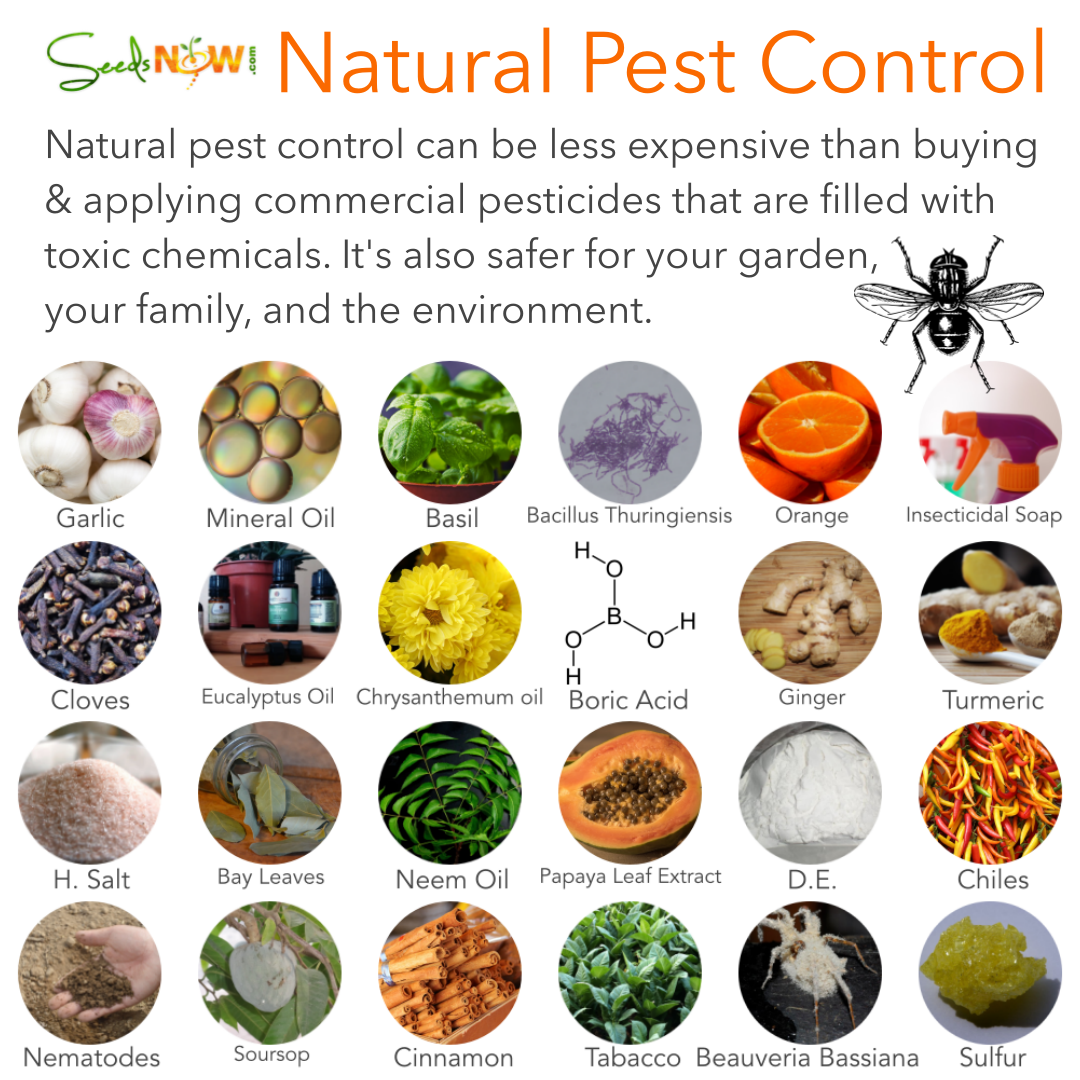Organic Pest Control for Gardens

Organic Pest Control for Vegetable Gardens: A Comprehensive Guide
Gardening is a labor of love, and when it comes to vegetable gardens, it's not just about the joy of growing but also about the harvest. However, pests can quickly turn your dream garden into a nightmare. But don't reach for the chemical sprays just yet. Organic pest control is not only safer for you and the environment, but it's also more sustainable in the long run. So, let's dive into the world of natural pest control and explore how to keep those critters at bay the organic way.
Understanding Garden Pests
Before we delve into organic methods of pest control, let's understand our tiny foes. Garden pests include insects, mites, rodents, and even birds that can damage your plants or compete with them for resources. Each type of pest requires a different approach, making identification crucial.
Why Choose Organic Pest Control?
Organic gardening is more than just a trend; it's a responsibility. Chemical pesticides can harm beneficial insects, pollute water sources, and leave residues on your vegetables. Organic pest control methods, on the other hand, are safer, eco-friendly, and often cheaper. Plus, they encourage biodiversity and promote a healthier garden ecosystem.
Prevention: The First Line of Defense
The best way to control pests is to prevent them from becoming a problem in the first place. Here's how:
Healthy Soil, Healthy Plants
Strong, healthy plants are better equipped to resist pests. Enrich your soil with compost and organic fertilizers to boost your plants' immune systems.
Crop Rotation
Many pests are plant-specific. Rotating your crops each year can help disrupt their life cycles and prevent infestations.
Companion Planting
Some plants naturally repel pests. Planting them alongside your vegetables can provide a natural barrier. For example, marigolds deter nematodes, while mint repels ants and rodents.
Identifying Common Vegetable Garden Pests
Identification is key to effective natural pest control. Here are some common culprits:
Aphids
These tiny, sap-sucking insects can cause wilting and yellowing leaves. They're particularly fond of young, tender growth.
Caterpillars
These hungry critters can devour entire leaves and even whole plants if left unchecked.
Slugs and Snails
These slimy creatures leave telltale trails and ragged holes in leaves. They're most active at night and during wet weather.
Organic Methods for Pest Control
Now that we've identified the enemy let's discuss some organic methods for keeping them at bay.
Physical Barriers
Row covers and netting can physically prevent pests from reaching your plants. These are particularly useful against birds, butterflies, and larger insects.
Handpicking
For larger pests like caterpillars and snails, handpicking can be an effective control method. It's time-consuming but also the most environmentally friendly.
Organic Sprays
There are numerous organic sprays you can use to deter pests. Soap and water, for instance, can be effective against aphids and other soft-bodied insects. Neem oil is another popular choice, as it disrupts the life cycle of many pests.
Beneficial Insects
Not all insects are bad. Many, like ladybugs and lacewings, feed on garden pests. Attracting these beneficial insects to your garden can provide a natural form of pest control.
DIY Organic Pest Control Recipes
Why buy expensive sprays when you can make your own? Here are a couple of simple recipes:
Soap Spray
Mix 1 tablespoon of mild liquid soap with 1 quart of water. Spray directly onto pests. This works best on soft-bodied insects like aphids and mites.
Garlic Spray
Blend 3-4 cloves of garlic with 1 tablespoon of vegetable oil, 1 teaspoon of mild liquid soap, and 1 quart of water. Let it sit overnight, then strain and use as a spray. Garlic is a natural pest repellent.
When to Call in the Professionals
Sometimes, despite our best efforts, pests get the upper hand. If you're feeling overwhelmed, don't hesitate to contact a professional. Many pest control services now offer organic options.
Additional Resources
For more information on organic pest control, check out this comprehensive guide. It's packed with tips and tricks for keeping your garden pest-free the natural way.
Conclusion
Organic pest control for vegetable gardens is not just about protecting your plants; it's about nurturing a healthy, sustainable ecosystem. It's about working with nature, not against it. So, let's ditch the chemicals and embrace the organic way. Your garden, and the planet, will thank you.
FAQs
Q: What is the best organic pesticide?
A: The 'best' organic pesticide depends on the pest you're dealing with. Soap and water, neem oil, and diatomaceous earth are all popular choices.
Q: How can I prevent pests in my garden?
A: Prevention is key. Maintain healthy soil, rotate your crops, and use physical barriers to deter pests.
Q: Are there any plants that naturally repel pests?
A: Yes, many plants have natural pest-repelling properties. These include marigolds, mint, and chives.
Q: What are beneficial insects?
A: Beneficial insects are those that help control pests. These include ladybugs, lacewings, and parasitic wasps.
Q: Is organic pest control safe for pets and children?
A: Generally, yes. Organic pest control methods are much safer than chemical pesticides. However, some organic sprays can cause mild irritation, so it's always best to keep children and pets away from treated areas until they're dry.
0 Response to " Organic Pest Control for Gardens"
Post a Comment